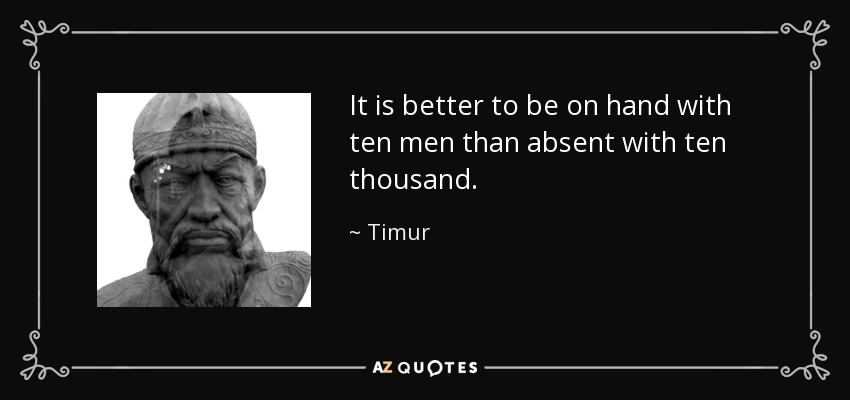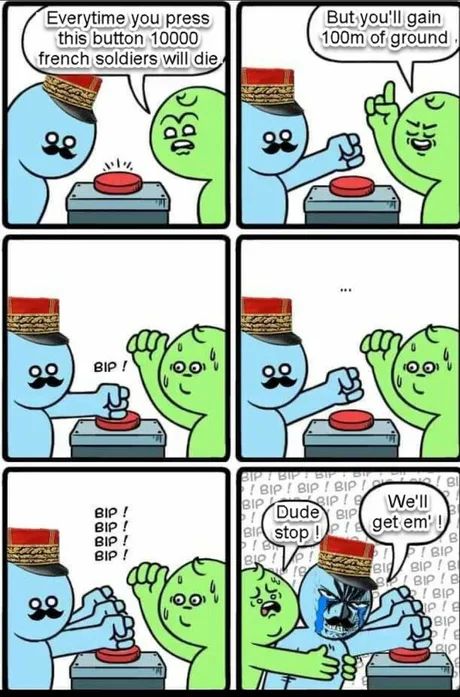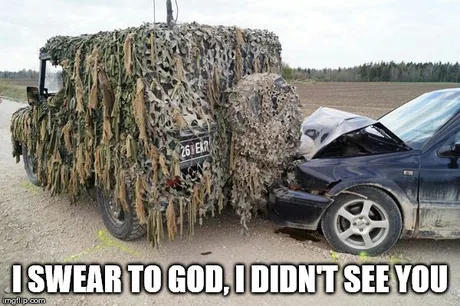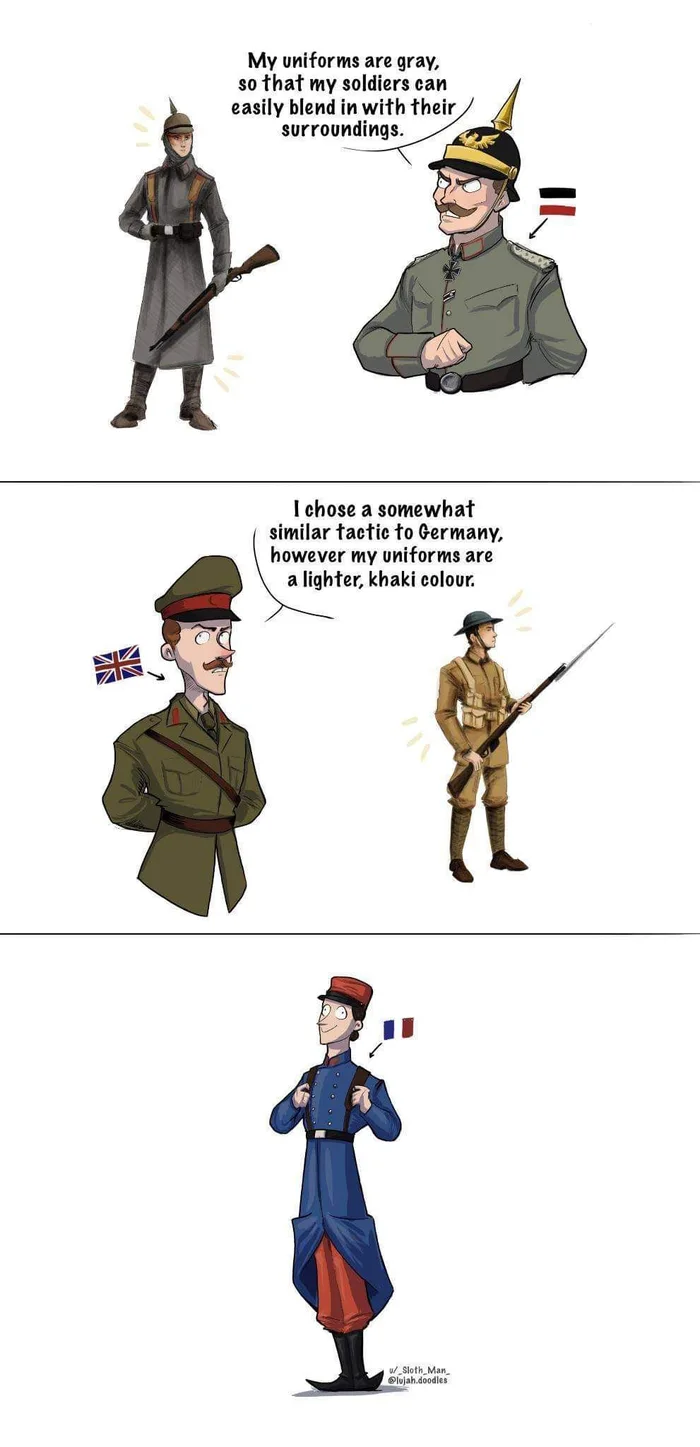I will use this easily accessible translation version
to comment on the Art of War, and I will pretend that Sun Tzu was indeed a historical person.
 |
Sun Tzu artist's impression from Qīnggōngdiàn Cánghuàběn
清宮殿藏畫本 / 清宫殿藏画本 |
VII. Maneuvering
1. Sun Tzu said: In war, the general receives his commands
from the sovereign.
This is the primacy of politics over the military. It was violated numerous times, and very often there was no difference between being king or general.
2. Having collected an army and concentrated his forces,
he must blend and harmonize the different elements thereof before pitching
his camp.
3. After that, comes tactical maneuvering, than which there
is nothing more difficult. The difficulty of tactical maneuvering consists
in turning the devious into the direct, and misfortune into
gain.
4. Thus, to take a long and circuitous route, after enticing
the enemy out of the way, and though starting after him, to contrive to
reach the goal before him, shows knowledge of the artifice of
deviation.
So this is what's commonly called "operational level of warfare", not "tactics" nowadays. Some people deny that there's any useful difference between both. The difference in tasks between a small unit leader and an army leader in the field (or military theatre commanding officer nowadays) is so great that there's almost no overlap or none at all. This supports the notion that somewhere in between is a good spot for drawing a line. During the world wars this dividing line was IMO just above corps command, whereas nowadays in Europe it would be just below it.
5. Maneuvering with an army is advantageous; with an undisciplined
multitude, most dangerous.
Maneuvering always carries some risks and challenges that can be avoided by static inaction, but it also gets rid of some of the latter's problems. Some armies have attempted to replicate WW2-style rapid tank forces' actions - with very mixed bag results. You need different skill sets as an army for mobile warfare than for static warfare. 6. If you set a fully equipped army in march in order to
snatch an advantage, the chances are that you will be too late. On the
other hand, to detach a flying column for the purpose involves the sacrifice
of its baggage and stores.
There's a famous quote for this: 7. Thus, if you order your men to roll up their buff-coats,
and make forced marches without halting day or night, covering double the
usual distance at a stretch, doing a hundred LI in order to wrest an advantage,
the leaders of all your three divisions will fall into the hands of the
enemy.
I have read more than just a bit too much about military history, but I don't remember a single such incident. Sure, insufficient scouting led to some armies marching into an ambush, but high marching speeds seem to usually have created more trouble to the enemy than to the rapidly-marching army. So I rate this as an extremely dubious claim by Sun Tzu.
8. The stronger men will be in front, the jaded ones will
fall behind, and on this plan only one-tenth of your army will reach its
destination.
I doubt that any army ever had this kind of problem on a large scale. Even relatively disorganized armies had small units (clans, village communities) stick together during the march, for sure. Sun Tzu's paragraph does not fit at all into the picture of highly organised ancient Chinese armies that he's creating in the other parts.
There are some issues with rapid marching, of course. Yes, some vehicles break down and stay behind. Yes, some supplies may be left behind. Yes, some marching soldiers may fall ill or injure themselves. It may have become impossible to set up an orderly camp for the night if you extended the duration of a march during daytime. Most importantly, simple exhaustion may degrade the combat ability.
But again; rapid marching is usually credited in military history with saving the day or causing huge trouble to the opposing forces. The only armies that I know to have fallen apart during rapid marches were armies that were aggressively pursued on a long withdrawal.
9. If you march fifty LI in order to outmaneuver the enemy,
you will lose the leader of your first division, and only half your force
will reach the goal.
10. If you march thirty LI with the same object, two-thirds
of your army will arrive.
11. We may take it then that an army without its baggage-train
is lost; without provisions it is lost; without bases of supply it is
lost.
This had become rather obsolete in the meantime. The Napoleonic army sure had a baggage train, but it revolutionized European land warfare by largely living off the land and using rather little amenities like tents. These were highly situational strengths, certainly weaknesses in Russia.
Modern land forces on the other hand have driven the support and supply dependency to insane levels, to be expected during effectively 75 years without existential hot conflict.
12. We cannot enter into alliances until we are acquainted
with the designs of our neighbors.
Well, this certainly doesn't square well with the extreme durability of NATO, an alliance that persists regardless of circumstances. The designs of the allies kept changing, yet the mere thought of leaving NATO is widely being considered politically extreme if not irresponsible. So far it's difficult to support that disregarding the designs of the allies has incurred much harm. The errorism backlash to American 1990's policies in the Mid East was of marginal harm (the exaggerated allergic reaction to it was much more harmful, though).
13. We are not fit to lead an army on the march unless we
are familiar with the face of the country--its mountains and forests, its
pitfalls and precipices, its marshes and swamps.
14. We shall be unable to turn natural advantage to account
unless we make use of local guides.
Well, this is obviously outdated (and has been so for a while) in most areas due to modern cartography.
15. In war, practice dissimulation, and you will
succeed.
I do strongly doubt that the modern knowledge of ancient Chinese dialects suffices to justify the choice of such an uncommon word. This Sun Tzu sentence appears to be devalued by an overly fancy translation.
16. Whether to concentrate or to divide your troops, must
be decided by circumstances.
This sounds completely trivial, but let me tell you about why it isn't:
There was or is in English some talk about the difference between "recon pull" and "command push". The "3GW" crowd preferred the former. I'm not aware of any analogue discussion in German.
The "recon pull" approach requires to first learn about the situation, then decide how to act (repeating this in a cycle over and over) while the "command push" approach emphasises that you may make a plan and then carry it out even without much information or in spite of information about major changes of the situation.
Sun Tzu appears to side with "recon pull".
"Command push" was used much in military history, and often delivered success. Battle plans and marching orders were often drawn up the night before, and the order of battle on the battlefield often times dictated what the army could do during battle and what not. The Battle of Leuctra is a famous example. This approach was often successful or simply the only possible one given the poor communication technologies and poor mobility of dismounted infantry. Nowadays and with small forces in general the "recon pull" approach appears to be preferable most of the time.
17. Let your rapidity be that of the wind, your compactness
that of the forest.
18. In raiding and plundering be like fire, is immovability
like a mountain.
19. Let your plans be dark and impenetrable as night, and
when you move, fall like a thunderbolt.
20. When you plunder a countryside, let the spoil be divided
amongst your men; when you capture new territory, cut it up into allotments
for the benefit of the soldiery.
Well, these advices are pretty much instigations to war crimes nowadays, but they worked more or less well for ages. The Roman Empire eventually ran out of farmland to hand over to retiring legionaries and even gave desolate regions rather to barbaric tribes (foederatii) than to retiring soldiers later on, so the approach appears to have become unsatisfactory somehow.
A share of the war booty during the sacking of cities belonged to the warriors, mercenaries, even 18th century soldiers. Captured ships became prizes for the capturing captain and his crew. This was in part motivating, but also very often a hindrance or detrimental to discipline.
21. Ponder and deliberate before you make a
move.
The real question is "how much?".
Sun Tzu is of absolutely no help here.
22. He will conquer who has learnt the artifice of deviation.
Such is the art of maneuvering.
23. The Book of Army Management says: On the field of battle,
the spoken word does not carry far enough: hence the institution of gongs
and drums. Nor can ordinary objects be seen clearly enough: hence the
institution of banners and flags.
I strongly suppose that "barbarian" people also had useful signals, even if we have written documentations almost only from sophisticated empires.
24. Gongs and drums, banners and flags, are means whereby
the ears and eyes of the host may be focused on one particular
point.
25. The host thus forming a single united body, is it impossible
either for the brave to advance alone, or for the cowardly to retreat alone.
This is the art of handling large masses of men.
26. In night-fighting, then, make much use of signal-fires
and drums, and in fighting by day, of flags and banners, as a means of
influencing the ears and eyes of your army.
It's weird to see Sun Tzu write about nighttime combat, as there are almost no battle reports about ancient battles happening at night. Maybe the similar sophistication of the warring states' armies is the explanation. Roman and early Byzantine armies may have enjoyed an organizational advantage over most opposing forces that would have been devalued by the problems of night combat, leading to them avoiding night battles other than camp defence and maintaining a siege against a sally. The absence of such an asymmetry in ancient pre-imperial China may have made night combat less disadvantageous.
27. A whole army may be robbed of its spirit; a commander-in-chief
may be robbed of his presence of mind.
28. Now a soldier's spirit is keenest in the morning; by
noonday it has begun to flag; and in the evening, his mind is bent only
on returning to camp.
29. A clever general, therefore, avoids an army when its
spirit is keen, but attacks it when it is sluggish and inclined to return.
This is the art of studying moods.
This would be a more useful advice if he also told the general how to convince the enemy to wait with battle while your army simply sleeps a bit longer.
30. Disciplined and calm, to await the appearance of disorder
and hubbub amongst the enemy:--this is the art of retaining
self-possession.
I had to look that word up. It means loud noises, especially by disorderly groups. Again, I doubt that the translator can fully justify using such a rather rarely-used word.
Many historical tactics were about provoking and then exploiting a break in the order (and thus readiness) of the opposing force. Sun Tzu seems to rather give an advice towards a dangerously passive behaviour.
31. To be near the goal while the enemy is still far from
it, to wait at ease while the enemy is toiling and struggling, to be well-fed
while the enemy is famished:--this is the art of husbanding one's
strength.
32. To refrain from intercepting an enemy whose banners
are in perfect order, to refrain from attacking an army drawn up in calm
and confident array:--this is the art of studying circumstances.
33. It is a military axiom not to advance uphill against
the enemy, nor to oppose him when he comes downhill.
This is not really the modern way any more. The most dangerous defences are rear slope defences rather than forward slope defences. The reason for this is that whatever you can see on a battlefield you can shoot at, and what you can shoot at will likely be destroyed. To be seen are rarely and as fleetingly as possible is nowadays much more important than whether you can add a fraction of gravity to the force of your spear.
34. Do not pursue an enemy who simulates flight; do not
attack soldiers whose temper is keen.
35. Do not swallow bait offered by the enemy. Do not interfere
with an army that is returning home.
36. When you surround an army, leave an outlet free. Do
not press a desperate foe too hard.
This has largely fallen out of use in large encirclements since 1870 (Battle of Sedan), and a complete and impenetrable encirclement was already attempted at the Battle of Leipzig (1813). I say the rule of thumb is that attempted decisive and large-scale battles should not leave an escape route, even if it's under fires (see the disappointing operation at Falaise 1944). Meanwhile, if the mission is to quickly eliminate a battalion-sized pocket, go ahead and entice to a breakout attempt where you want it to happen.
37. Such is the art of warfare.
This chapter may create the impression of being super smart to a casual reader, and a cherrypicker will find something for his use.
It's nevertheless largely falling apart when looked at with military history knowledge and thoroughly. There are some good fragments, but a modern concise writing about the art of manoeuvering land forces would be as much better as the addition of 2,500 years of experiences on multiple continents suggests it should be. There's little reason to respect ancient scholars as authorities on modern land warfare wisdoms.












